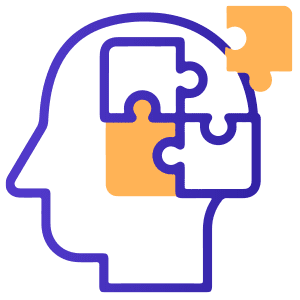Comprehensive Mental Health Services in Minnesota


Achieve Your Potential with our Qualified Psychologists
We are just a click away from helping you identify your inner strengths and making your present meaningful. Contact us, and we will schedule you with one of our experienced therapists, whether you visit us in Woodbury, Bloomington in Minnesota, or connect with our mental health services online across PSYPACT states.
Key Service

Psychotherapy
We offer counseling to individuals, couples, and families, and top-notch therapy for children in MN and adults alike.

Psychological Evaluatio
Our comprehensive evaluations are available for children, teens, and adults, provided by our skilled psychology consultants.

Medication Management
Consult with our psychiatry providers for personalized medication management.
Specialized mental health services

Your Path to Wellness Starts with Insights Psychology
We strive to create a safe and friendly environment where you will feel heard and understood. Whether you’re seeking mental health services in Woodbury or need support through our Bloomington mental health services.
Help is Just a Click Away! Get Professional Psychology Consultants in Woodbury and Bloomington.
At Insights Psychology, we offer both in-person and online therapy in MN. If you prefer the comfort of your home, our secure telehealth services are available. Our scheduling and intake process is designed to be easy, smooth, and paperless.

Frequently Asked Questions
What are the three types of trauma?
Trauma is typically grouped into three main categories:
- Acute Trauma: This stems from a single, distressing event, like a car accident or natural disaster.
- Chronic Trauma: Repeated or prolonged exposure to distressing situations, such as abuse or bullying.
- Complex Trauma: Exposure to multiple, varied traumatic events, often within interpersonal relationships.
Does one of these resonate with what you're curious about?
What is the best way to deal with trauma?
There's no one-size-fits-all solution, but some helpful steps include:
- Seeking Professional Help: Therapies like CBT, EMDR, or somatic experiencing are effective.
- Building a Support System: Surround yourself with trusted friends or family.
- Self-Care Practices: Exercise, mindfulness, and journaling can help you process emotions.
Want to dive deeper into any of these options?
How do you release trauma from the body?
Trauma can leave physical imprints, so releasing it often involves:
- Somatic Therapy: This focuses on reconnecting with your body.
- Movement Practices: Yoga, tai chi, or dance can help.
- Breathwork: Deep breathing exercises regulate the nervous system.
Let me know if you want tips to get started with any of these!
What are the 5 levels of trauma?
The "5 levels" typically refer to how trauma impacts different aspects of our being:
- Physical: Effects like tension, fatigue, or pain.
- Emotional: Feelings of fear, anger, or sadness.
- Cognitive: Negative thought patterns or memory issues.
- Social: Struggles with trust and relationships.
- Spiritual: Challenges with purpose or belief systems.
Do you want to explore how these might interconnect?
What is EMDR therapy used for?
EMDR (Eye Movement Desensitization and Reprocessing) is a specialized therapy for processing traumatic memories. It helps the brain "reframe" these memories so they feel less overwhelming. It’s like emotional decluttering—keeping the lessons but ditching the pain. Curious how it works?
How to calm a traumatized person?
Here are a few ways to offer comfort:
- Stay Present: Let them know you're there for them.
- Validate Their Feelings: Say things like, "It’s okay to feel this way."
- Encourage Grounding Techniques: Deep breaths, focusing on their surroundings, or feeling a textured object can help.
Want to learn more about grounding techniques?
What should you not say to a traumatized person?
Avoid phrases like:
- "Get over it."
- "It could have been worse."
- "Why didn’t you do [x] instead?"
These can minimize their experience. Instead, focus on empathy and patience. Do you want examples of what to say instead?
What is the most severe form of trauma?
Traumas vary in severity depending on personal impact, but complex trauma and prolonged exposure to severe abuse or neglect are often considered the most damaging. The intensity comes from how deeply these experiences affect a person’s sense of safety and identity. Interested in understanding its long-term effects?
What is the most damaging trauma?
The most damaging trauma is often subjective—it depends on the individual’s circumstances and resilience. However, childhood trauma, like abuse or neglect, can have profound, lasting effects because it occurs during critical developmental stages. Need help unpacking this further?
What does CPTSD mean?
CPTSD stands for Complex Post-Traumatic Stress Disorder. It develops from long-term exposure to trauma, often in relationships where escape wasn’t possible (e.g., childhood abuse or domestic violence). Symptoms can include emotional dysregulation, a negative self-image, and relationship difficulties. Curious about how it’s treated?
Feedback from Our Clients
Collected from client satisfaction surveys, these testimonials offer insight into the care and support provided at Insights Psychology
Click here to read more testimonials from our clients and colleagues
Words really don’t do justice for my appreciation for Dr. Siddiqui. I have been in counseling since I was 9, I’m now 40. For the first time in my life, I feel like there is hope, and I can see a future. If you’re willing to do the work, she’s a great asset to have in your arsenal.
~ Client
They want to make a difference
~ Client
Mollie is a very good listener, reflects on what I’m saying, and provides ideas on how to change my behavior in positive ways.
~ Client
Therapy has been extremely beneficial for me. My therapist is very caring.
~ Client
I worked with Dr Siddiqui most of 2023 to help deal with a traumatic event and other issues and found her to be an excellent resource. I’m very appreciative of the ways I’ve been able to grow due to our sessions. Very much recommended.
~ Client
Excellent establishment
~ Client
My therapist is wonderful to talk to. She keeps information and is able to recall specific things from one session to the next and beyond. She is insightful and helps me navigate my feelings and allows me to direct a lot of the process and provides feedback as appropriate.
~ Client
They want to make a difference
~ Client
Mollie has a gentle approach that is helping me toward being more gentle with myself. I feel immense gratitude for having Mollie as a part of my support team.
~ Client
I feel April and I are able to work together very effectively. I do trust her
~ Client
~ Client
Dr. Flanery is thoughtful and brings evidence based tools to combat anxiety and help regulate my body.
~ Client
Our Insurance Partners
Coverage for our services is supported by our in-network insurance partners. You can also opt for Self Pay


For Patients
All forms are HIPAA secure
Meet Our Qualified Team









